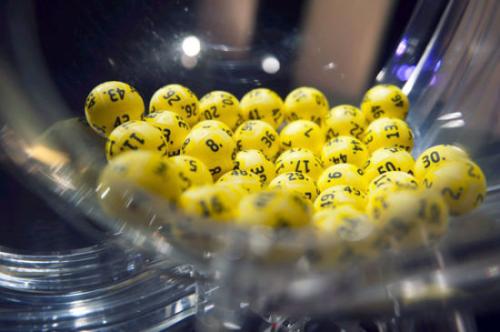"You have these honest dupes," Sand says.
桑德說,“現(xiàn)在出現(xiàn)了這些誠實的騙子。”
"All these people are being offered thousands of dollars for doing something that's a little bit sneaky but not illegal."
“所有這些人都因為做了一些偷偷摸摸但不違法的事情而得到了數(shù)千美元的報酬。”
Investigators in Iowa now had six tickets they figured were part of a bigger scam. But the question remained: How did it work?
愛荷華州的調(diào)查人員現(xiàn)在獲知了六張中獎彩票,他們認(rèn)為這是更大的騙局的一部分。但問題依然存在:它是如何運作的?
Fortunately, the computers used in the 2007 Wisconsin Lottery jackpot were sitting in storage.
幸運的是,2007年威斯康辛州彩票頭獎中使用的電腦被存放在儲藏室里。
A computer expert, Sean McLinden, unearthed some malicious computer code.
計算機專家肖恩·麥克林登發(fā)現(xiàn)了一些惡意的計算機代碼。
It hadn't been hidden; you just needed to know what to look for.
它沒有被隱藏起來;你只需要知道要找什么。
"This," says Wisconsin assistant attorney general David Maas, "was finding the smoking gun."
威斯康辛州助理司法部長大衛(wèi)·馬斯說,“這個,就是確鑿的證據(jù)。”
Eddie Tipton pleaded guilty, as did his brother, Tommy.
艾迪·蒂普頓認(rèn)罪了,他的弟弟湯米也認(rèn)罪了。
Now facing ten years in prison, Eddie agreed to spill his secrets, which lottery officials hoped would help them safeguard the games in the future.
艾迪現(xiàn)在面臨10年的監(jiān)禁,他同意透露自己的秘密,彩票官員希望這能幫助他們在未來保護(hù)彩票的安全。
He explained that the whole scheme had started fairly innocently one day when he walked past one of the accountants at the Multi-State Lottery Association.
他解釋說,有一天,當(dāng)他跟多州彩票協(xié)會的一位會計師聊天時,整個計劃已經(jīng)相當(dāng)天真地開始了。
"Hey, did you put your secret numbers in there?" the accountant teased Eddie.
這個會計師取笑艾迪說,“嘿,你把你的秘密號碼放進(jìn)去了嗎?”
"What do you mean?" "Well, you know, you can set numbers on any given day since you wrote the software."
“什么意思?”你知道,因為是你寫了這個軟件,所以你可以在任何一天設(shè)定號碼。”
"Just like a little seed that was planted," Eddie said. "And then during one slow period, I tried it."
艾迪說,“這軟件就像種下了一粒小種子,然后在一段漫長的時間里,我嘗試了設(shè)定號碼。”
To ensure that the winning numbers were generated randomly, the computer took a reading from a Geiger counter that measured radiation in the surrounding air.
為了確保中獎號碼是隨機產(chǎn)生的,計算機從一個測量周圍空氣輻射的蓋革計數(shù)器上讀取讀數(shù)。

The radiation reading was plugged into an algorithm to come up with the winning lottery numbers.
輻射讀數(shù)被輸入到一個算法中,以得出中獎彩票號碼。
Eddie's scheme was to limit the random selection process as much as possible.
艾迪的計劃是盡可能地限制隨機選擇過程。
His code kicked in only if the coming drawing fulfilled a narrow set of circumstances.
他的代碼只有在抽取滿足有限的條件時才會生效。
It had to be on a Wednesday or a Saturday evening, and one of three dates in a nonleap year:
它必須得在星期三或星期六晚上,而且是在平年的三個日期之一:
the 147th day of the year, the 327th day, or the 363rd day.
第147天,第327天,或第363天。
Investigators noticed those dates generally fell around holidays—Memorial Day, Thanksgiving, and Christmas—when Eddie was often on vacation.
調(diào)查人員注意到,這些日子一般都在節(jié)假日前后——陣亡將士紀(jì)念日、感恩節(jié)和圣誕節(jié)——埃迪經(jīng)常在這段時間度假。
If those criteria were satisfied, the random-number generator was diverted to a different track that didn't use the Geiger counter reading.
如果這些條件滿足了,隨機數(shù)發(fā)生器就會被轉(zhuǎn)移到另一條不使用蓋革計數(shù)器讀數(shù)的軌道上。
Instead, the algorithm ran with a predetermined number, which restricted the pool of potential winning numbers to a much smaller, predictable set of options:
相反,該算法以一個預(yù)先確定的號碼運行,這將潛在的中獎號碼池限制在一個小得多、可預(yù)測的選項集:
Rather than millions of possible winning combinations, there would be only a few hundred.
不是數(shù)以百萬計可能獲勝的組合,而是只有幾百種。


